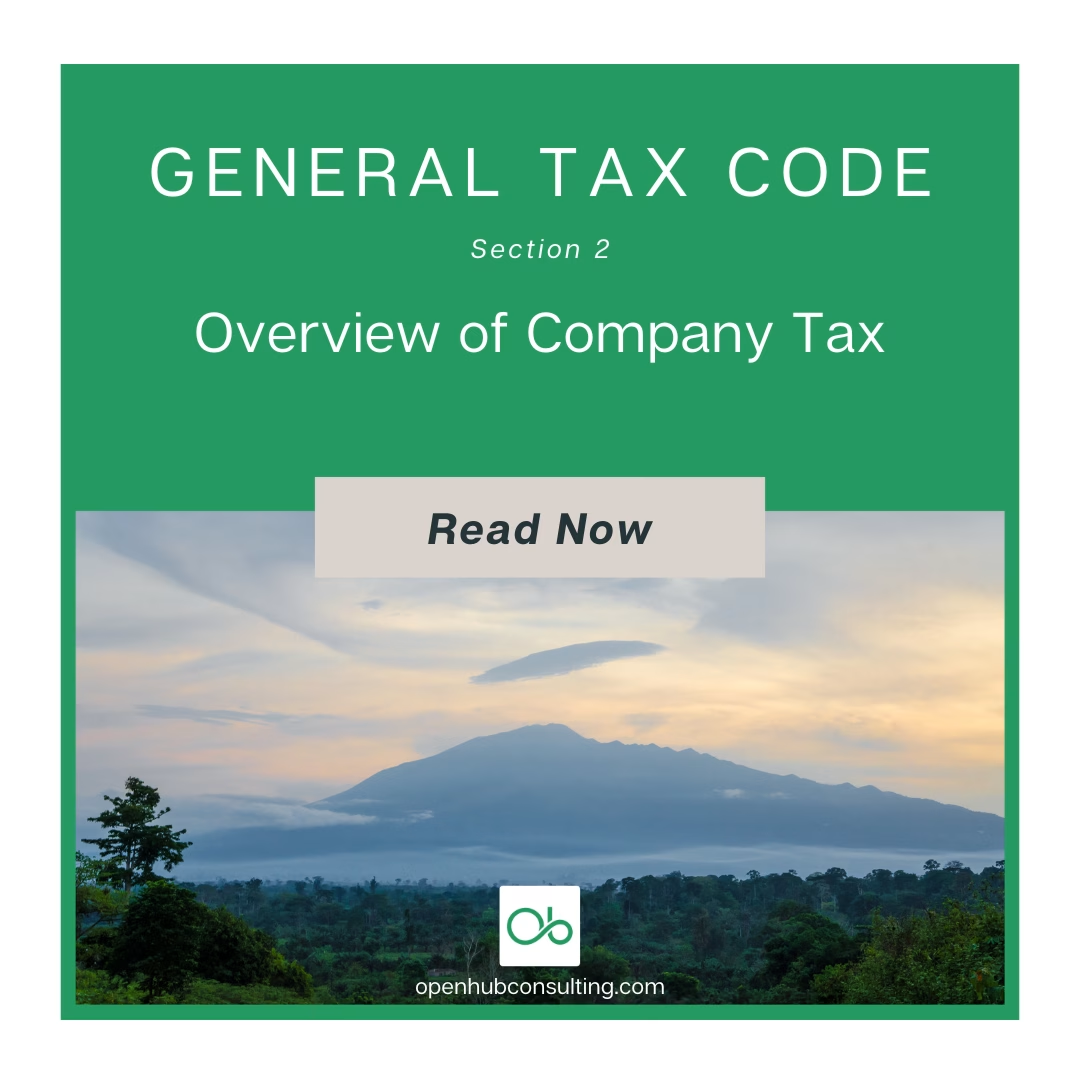Section 2 of the General Tax Code introduces Company Tax. This tax is a levy on profits or income generated by companies. It also applies to other corporate bodies operating within Cameroon. This tax ensures that businesses contribute to the national revenue based on their financial performance.
What is Company Tax?
Company Tax is a direct tax imposed on profits or income earned by businesses. It applies to:
- Corporate Entities:
- Joint-stock companies, limited liability companies, co-operative societies, and public establishments engaged in gainful activities.
- Civil Companies:
- Businesses carrying out commercial, industrial, agricultural, or real estate activities, such as:
- Real estate transactions (e.g., parceling and selling land).
- Renting furnished commercial or industrial properties.
- Businesses carrying out commercial, industrial, agricultural, or real estate activities, such as:
- Partnerships Opting for Company Tax:
- Partnerships, including joint ventures and financial syndicates, that choose to be taxed as companies.
- Public Bodies and Microfinance Institutions:
- Public establishments conducting gainful activities and all microfinance institutions are liable to company tax.
Exemptions from Company Tax
Section 4 provides exemptions for certain entities and activities, including:
If this article helped you, you can support our work at OpenHub.
Support OpenHub Digital- Agricultural Co-operatives:
- Co-operatives producing, processing, and selling agricultural products.
- Excludes retail sales or processing unrelated to agricultural production.
- Non-Profit Educational Institutions:
- Private schools operating without profit motives.
- Investment Funds:
- Open-end investment companies (SICAV) and mutual credit funds within their legal framework.
How is Company Tax Applied?
- Taxable Profits:
- Calculated based on net income generated from activities carried out in Cameroon.
- Irrevocable Option for Partnerships:
- Partnerships opting for company tax must notify the tax authority within three months of the financial year’s start.
- Separate Accounting for Exempt Entities:
- Organizations engaged in both taxable and exempt activities must maintain separate accounts for accurate reporting.
Why This Matters
- Legal Compliance:
- Proper classification ensures businesses meet their tax obligations and avoid penalties.
- Opportunities for Exemptions:
- Eligible entities can reduce their tax liabilities significantly by leveraging exemptions.
- Financial Planning:
- Understanding company tax obligations helps businesses plan their finances effectively.
Section 2 of the General Tax Code provides a comprehensive overview of Company Tax. It outlines its application, scope, and exemptions. By adhering to these provisions, businesses can ensure compliance and contribute to national development.
For a detailed guide on Company Tax and other provisions, download your copy of the 2024 General Tax Code here.
Let our Tax Management Services help you stay on top of deadlines and filing requirements.
From Insight to Implementation
Going through the administrative and legal landscape in Cameroon requires more than just information—it requires a grounded local partner. At OpenHub Consulting, we specialize in helping the diaspora and international investors turn their business visions into compliant, operational realities.
If you are ready to move forward, our team is prepared to manage your registration and compliance from start to finish.
Start Your Company Incorporation →Discover more from OpenHub Digital
Subscribe to get the latest posts sent to your email.

